 |
| The New Bohemians at Irving Plaza and a flag in Wappinger Falls and that old Its Like This tape. |
There were
countless favorite New Bohs shows during those years, some at the.
500 Café 1986,
Club Dada, even one in LA after their
album broke.
Eddie looked at me. I looked
at her.
She sang “Love
Like We Do” looking me in the eye, seemingly telling me,
She wanted
to have my kids.
At least that’s what I thought singing with her,
watching the band play.
I adored the
sound, Brandon’s drums, dancing with Kenny’s guitar, Brad’s Jaco like base
lines, intermingling with John’s percussion, Chris’ drums, melding a web of
sound I listened to driving home from
school on rainy days. It was a
sound I first heard after
picking up their tape Its Like This.
It was my
favorite tape, living in my car from sophomore to senior year when someone
stole it and all my tapes.
I always
missed my tape.
I tried to steal
someone else’s copy but got caught.
And
lost my job.
So I brought it back.
But I could
never really get it back.
So I’ve
listened to the bootlegs, writing
stories about those years, when the family disintegrated and I found a new way
of looking at the world acting up and
pasting together pieces of narratives, drafting Illuminations
on Market Street, the novel that grew out of all that writing.
My first
album review in college was for Shooting
Rubberbands at the Stars.
After that,
the habit stuck.
They’ve
always been my soundtrack.
Its all
there, sneaking into shows, losing tapes, and finding something better.
German
social critic Walter Benjamin aspired to put together a book solely made of quotes
from other people.
We are the
part of all those songs and books
and influence within the cultural tides.
Novels
songs.
Shaping us.
The New Bohs
eclectic mix, of reggae, ska, jazz, a
few Zepplin covers.
There was
always feeling that everything in the world was there when they played.
On Friday,
we went to see them, dropping in at 80 St Marks Place on the way, immersive
theater experiments, with performers running
to and from, grabbing a drink at the bar, a part of the experience.
Jody shared
some fries.
She’s lived everywhere.
But now she’s
here.
The bar was
going to be open till midnight.
We walked up
to 15th.
The band was
already playing when we arrived, just as I’d show up at countless shows of their from 1986
to 1989. I loved the imagery of the lyrics, the drums, the jam, the sensibility.
Three decades later, the feeling remains.
Listening to them I am reminded of the Texas of my childhood.
This was a Honky Tonk place, where we shared culture, a seemingly open border, holidays and spices.
“My ranch is on the river, it's on the border. You can't
survive without the river,” Mitchell tells Bourdain. “And we can't survive
without the people on that side of the river. They can't survive without us…
And they're our friends, for God's sake.”
Of course, the "mutual respect" between Texas and
Mexico disavows our president’s panic ridden, opportunistic narrative of the border.
I never heard a Texan talk like Trump about Mexico.
We shared water, electricity, ideas, and family.
Certainly, that mix of cultures is part of what makes the
New Bohs shows so rich.
Eddie regaled us with stories about a lost guitar her dad won
at a bowling tournament:
“I went out for a while
When I come back everything was changed
Or only for a while
When I come back everything was changed
My clothes were on the floor
Spilling out the drawer, someone had been here
My heart began to race
Nothing in its place, suddenly my fear
Oh, take the money, take the TV
Take my clothes
Please not my guitar, empty corner
It was gone
…
When I come back everything was changed
Or only for a while
When I come back everything was changed
My clothes were on the floor
Spilling out the drawer, someone had been here
My heart began to race
Nothing in its place, suddenly my fear
Oh, take the money, take the TV
Take my clothes
Please not my guitar, empty corner
It was gone
…
My Spanish style guitar
I wonder where you are, so far from your home
My Spanish style guitar
I want you in my arms, back where you belong…”
I wonder where you are, so far from your home
My Spanish style guitar
I want you in my arms, back where you belong…”
My favorite
New Bohs lyrics are from ‘Air of December’ featured on that first tape in 1986.
They played
it Friday:
‘Thursday
afternoon you cast a shadow 'round my room
The breeze moved the curtains and lifted my perfume into the air
And danced with lazy curls in your hair
The sun was in the sky like pink champagne,
And it glistened in your eyes all day
I, I remember you put a chill across my face
Like the air of December
I swear I remember it that way
I swear I remember it that way
I swear I remember it
The breeze moved the curtains and lifted my perfume into the air
And danced with lazy curls in your hair
The sun was in the sky like pink champagne,
And it glistened in your eyes all day
I, I remember you put a chill across my face
Like the air of December
I swear I remember it that way
I swear I remember it that way
I swear I remember it
Where
are you now?
Where are you now?
Where are you?
Where are you now?
Where are you?
You
stood by the lake,
I wanted to take you for granted
The grass was thin and high,
The water mirrored tiny sparkles to the sky
I, I remember you put a chill across my face
Like the air of December
I swear I remember it that way
I swear I remember it that way
I swear I remember it
I wanted to take you for granted
The grass was thin and high,
The water mirrored tiny sparkles to the sky
I, I remember you put a chill across my face
Like the air of December
I swear I remember it that way
I swear I remember it that way
I swear I remember it
Where
are you now?
Where are you now?
Where are you
Now?
Where are you now?
Where are you
Now?
Where
are you now?”
Lights
in the puddles reflecting in the rain, its an idea that found its way across Henri
Matisse canvasses, just as it does these songs.
Midway
through the set, they performed a song from their second full album, a quiet,
sad song about a friend no longer there, except for the reminders:
“How can that dog
be barkin' in the backyard?
We ran over him years ago
How can that dog be runnin' by the back fence?
We ran over him years ago
Ghost of a dog
Barkin' in the backyard
How can that dog be scratchin' at the back door?
We ran over him years ago
How can that dog be lying under the shady tree
Where we buried him years ago?
Ghost of a dog
Flyin' through the backyard.”
We ran over him years ago
How can that dog be runnin' by the back fence?
We ran over him years ago
Ghost of a dog
Barkin' in the backyard
How can that dog be scratchin' at the back door?
We ran over him years ago
How can that dog be lying under the shady tree
Where we buried him years ago?
Ghost of a dog
Flyin' through the backyard.”
Supporting
a new album, with lots of horns, silly refrains, and drums, they set ended with
everyone’s favorite New Bohs song, ‘Circle.’
I
remember hearing it for the first time, before leaving my final shift at the
best job I ever had at the Inwood Theater, my world disappearing. I was in the
Inwood Lounge the sound played across the theater.
“everything
is temporary.”
She
was right.
But
I didn’t want to hear it.
Those
teenage feelings claw at you your whole life Eddie explained as she introduced final
song.
“Me, I'm a part of your circle of
friends
And we notice you don't come around
Me, I think it all depends on you
Touching ground with us but
And we notice you don't come around
Me, I think it all depends on you
Touching ground with us but
I quit, I give up, nothing's good
enough for anybody else
It seems
And I quit, I give up, nothing's good enough for anybody else
It seems
It seems
And I quit, I give up, nothing's good enough for anybody else
It seems
And being alone is the, is the best
way to be
When I'm by myself it's the best way to be
When I'm all alone it's the best way to be
When I'm by myself, nobody else can say goodbye
When I'm by myself it's the best way to be
When I'm all alone it's the best way to be
When I'm by myself, nobody else can say goodbye
Everything is temporary anyway
When the streets are wet, the colors slip into the sky
But I don't know why that means you and I are
That means you and I
When the streets are wet, the colors slip into the sky
But I don't know why that means you and I are
That means you and I
I quit, I give up, nothing's good
enough for anybody else
It seems
And I quit, I give up, nothing's good enough for anybody else
It seems
It seems
And I quit, I give up, nothing's good enough for anybody else
It seems
And being alone is the, is the best
way to be
When I'm by myself, it's the best way to be
When I'm all alone, it's the best way to be
When I'm by myself, nobody else can say
Me, I'm a part of your circle of friends
And we noticed you don't come around
When I'm by myself, it's the best way to be
When I'm all alone, it's the best way to be
When I'm by myself, nobody else can say
Me, I'm a part of your circle of friends
And we noticed you don't come around
La la la la la la la…”
I’ve
loved them through the years, watching the world where I watched them ebb and
shift.
People
pass through your life, even the people you go to shows with. Sometimes they are kids.
Sometimes
they are your everything.
And
you have to live with what happens after they are gone.
Nick
Cave lost his child during a climbing accident, explaining:
So
how can we find happiness?
It’s
a discussion we’ve had over the last few weeks in Stanley’s class.
Could
it be eating a bagel at Yonah Schimmel?
Could
it be listening to music with a friend?
Could
it be reading Benjamin on Saturday?
We
need history posits Nietzsche.
‘You
should write about eternal returns…”
notes Caroline, suggesting I continue this exploration of aphorisms, activism
and history.
I
don’t have as many answers.
Only
bits and pieces of intersecting narratives and lots of stories.
Why
eternal returns?
Because
we are stupid?
Why
fascism?
Why
the jealousy and selfishness that is always there?
Why
are we so stupid?
Why
do we only use 10% of our brains?
Who
is the hunchback, we asked reading the first of the Thesis on the Philosophy of
History?
Who
is the puppet?
Stanley
is all over the place.
Can
we ever be happy, we ask reading Thesis #2.
There
are two schools of thought.
Through
a steady march toward progress we can find happiness.
On
the other hand, we can see that as long as
there is exploitation of labor,
no
one can be happy.
There
are few clear examples.
Perhaps,
happiness is a bourgeois ideology?
But
we can create a society of understanding, posits Habermas.
We
can be kind to our neighbors.
Kindness
is the golden chain by which society is bound together, notes Geothe.
Is
happiness an bourgeois notion?
Are
we just waiting for a messiah?
Is
redemption possible?
The
messiah is not coming.
We
have to save the text, the culture, the book.
We
have to hope.
“There is a secret agreement between past
generations and the present one,” writes Benjamin.
We owe something to each other.
The
revolution must include culture. If it
doesn’t there will never be liberation.
We
owe the revolutionaries of the past our efforts, as we look into the future, hopefully
leaving something better for our
children, social security, clean water, skies, but progress is anything but guaranteed; certainly not
today with fires out west, rising deficits, and temperatures.
At
least this was on my mind, making my way
to
Wappinger
Falls, a village in Dutchess County, where Rob and
I read poems, talked writing, and conspiring.
Looking
at the waterfall.
The
drug panics in a crumbling old town.
The
water crashing.
Fulcrum by Addy Brown
for Rob Magnuson Smith
Bathing
at the local water-hole
Along
the river’s course we watch two boys
Stuck
in her kayak across the weir’s brim
Rocking
back and forth on their unexpected
fulcrum
We
swim across and push them from the stern;
For
what is manhood but leaving the vessel
Of
yourself over the dam’s tipping point?
Rob
reads Wallace Stevens – a weak mind in the mountains.
And
we talk about engagement and fear.
The
Lone Stryker was-Dad’s fave
Another
lament on regret and work.
Historically
engaged or detached poems and lives, the weight of history is heavy.
History
lulls and tugs.
But
how have we become who we are?
What is our
becoming?
What
becomes of those fragments?
Can
they come back together?
Can we?
How
do we make the most of our time in
history?
We
wonder about it all as we stroll through the Mohonk Preserve,
Watching
the hikers hang, precarious as ever.
Nick
cave lost his child to such rocks.
Eddie
lost her guitar.
I
lost my mix tape.
Songs were born.
Novels hatched.
Songs were born.
Novels hatched.
History is still beyond
knowing.
knowing.
Walter Benjamin |
|||
On the Concept of History
|
|||
(often referred to as…)
|
|||
Theses on the Philosophy of History
|
|||
I
|
|||
The story is told of an automaton constructed in
such
a way that it could play a winning game of chess,
answering
each move of
an opponent with a countermove. A
puppet in Turkish
attire and with a hookah
in its mouth sat before a
chessboard placed
on a large table. A system of
mirrors created the
illusion that this
table was transparent from all sides.
Actually, a
little hunchback who
was an expert chess player sat inside and
guided
the puppet’s hand by
means of strings. One can imagine a philosophical
counterpart to this
device. The
puppet called ‘historical materialism’ is to
win
all the time.
It can
easily be a match for anyone if it enlists the
services of theology,
which today, as we know, is wizened and has to
keep out of sight. |
|||
II
|
|||
‘One of the most remarkable characteristics of
human nature,’
writes Lotze, ‘is, alongside so much selfishness
in specific instances,
the freedom from envy which the present displays
toward the future.’
Reflection shows us that our image of happiness is
thoroughly
colored
by the time to which the course of our own existence
has assigned us.
The kind of happiness that could arouse envy in us
exists only in the air
we
have breathed, among people we could have
talked to, women who
could have
given themselves to us. In other words,
our image of
happiness is
indissolubly bound up with the image
of redemption. The
same applies to our
view of the past, which is the
concern of history. The
past carries with it a
temporal index by which it
is referred to redemption.
There is a secret
agreement between past generations
and the present one.
Our coming was
expected on earth. Like every
generation that preceded us,
we have been endowed
with a weak Messianic
power, a power to which the
past has a claim. That
claim cannot be settled
cheaply. Historical materialists
are aware of that.
|
|||


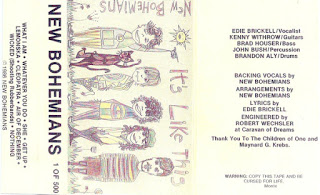


















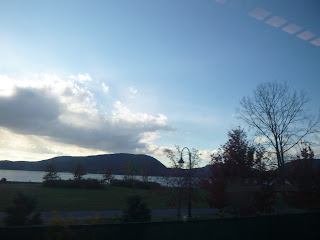


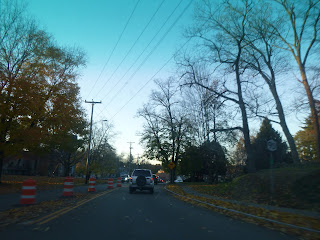












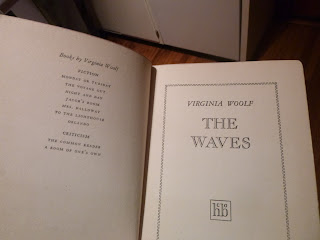





















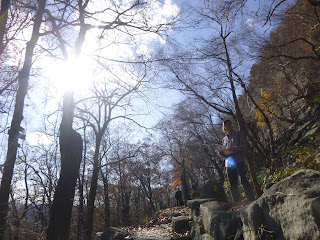























































Nice blog and Pictures.thanks.online book Ticket through Redbus
ReplyDelete